Indigenous Governance Database
community leaders
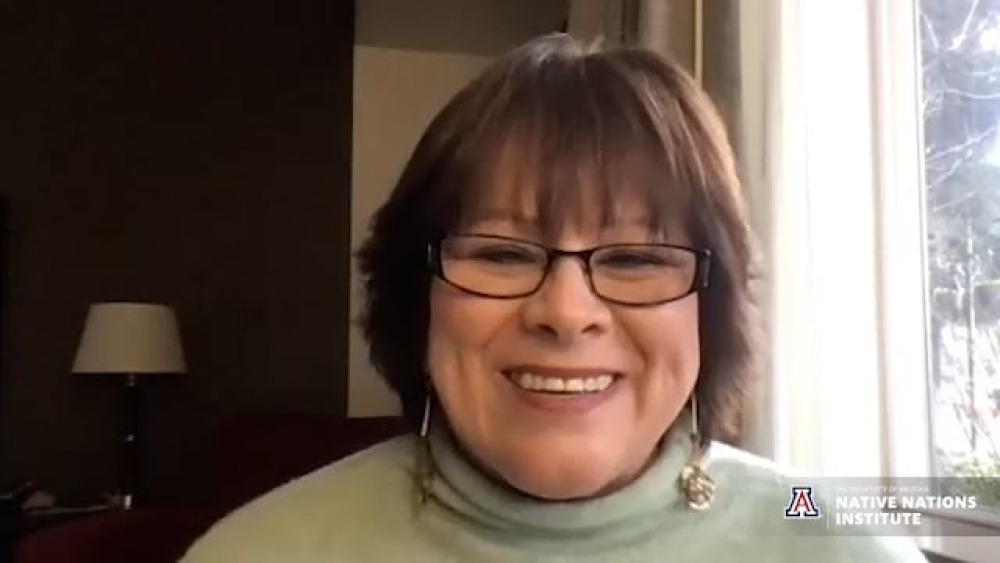
Indigenous Governance Speaker Series: How to Build a Nation with Susan Masten (Yurok)
Susan Masten (Yurok), former Chairwoman and valuable leader of the Yurok Tribe, joins the Native Nations Institute's Executive Director, Joan Timeche (Hopi), for an engaging discussion on Native nation building, specifically, how she actually helped build the nation. She was critical to the…
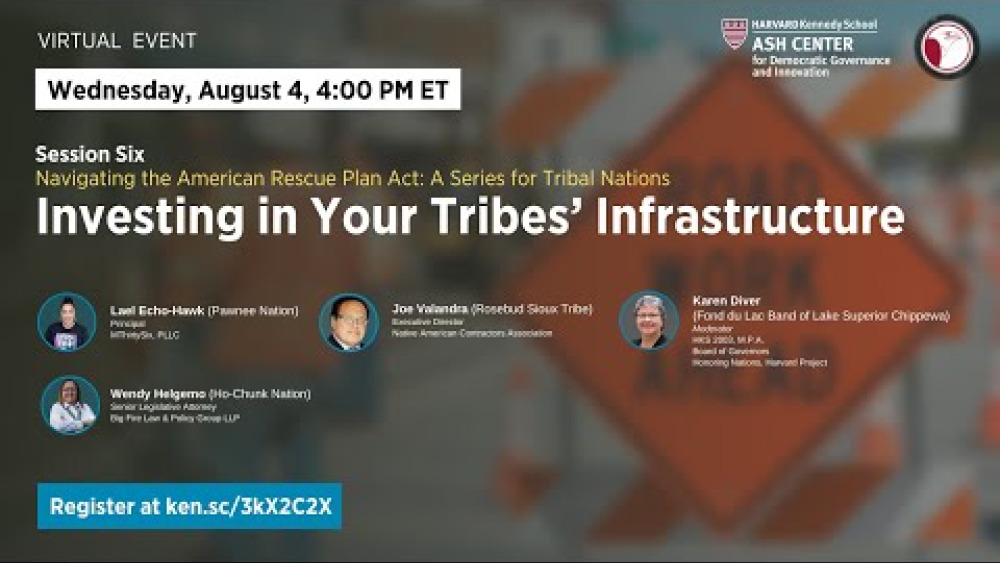
Navigating the ARPA: A Series for Tribal Nations. Episode 6: Investing in Your Tribes' Infrastructure
From setting tribal priorities, to building infrastructure, to managing and sustaining projects, the American Rescue Plan Act (ARPA) presents an unprecedented opportunity for the 574 federally recognized tribal nations to use their rights of sovereignty and self-government to strengthen their…
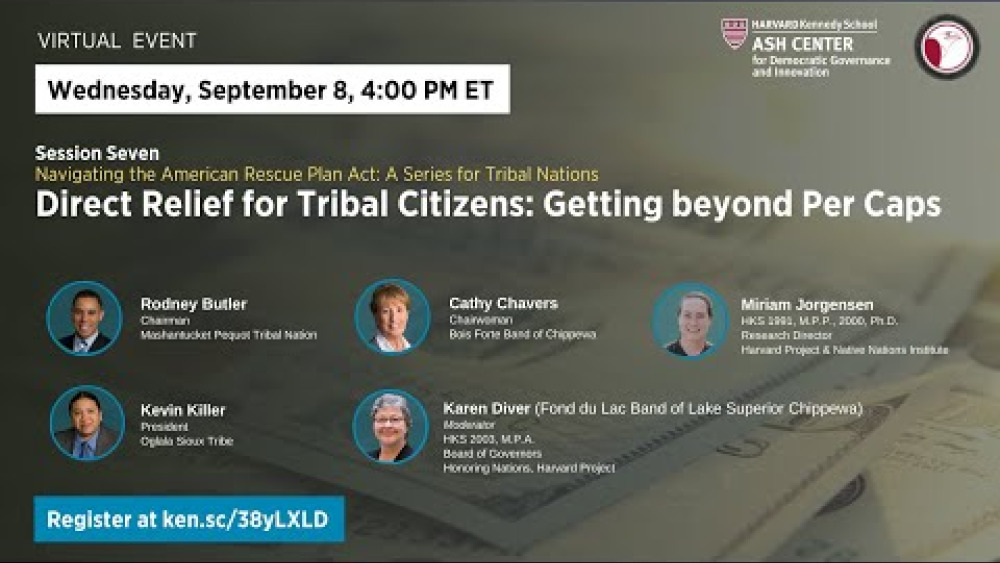
Navigating the ARPA: A Series for Tribal Nations. Episode 7: Direct Relief for Tribal Citizens: Getting beyond Per Caps
From setting tribal priorities to building infrastructure to managing and sustaining projects, the American Rescue Plan Act (ARPA) presents an unprecedented opportunity for the 574 federally recognized tribal nations to use their rights of sovereignty and self-government to strengthen their…
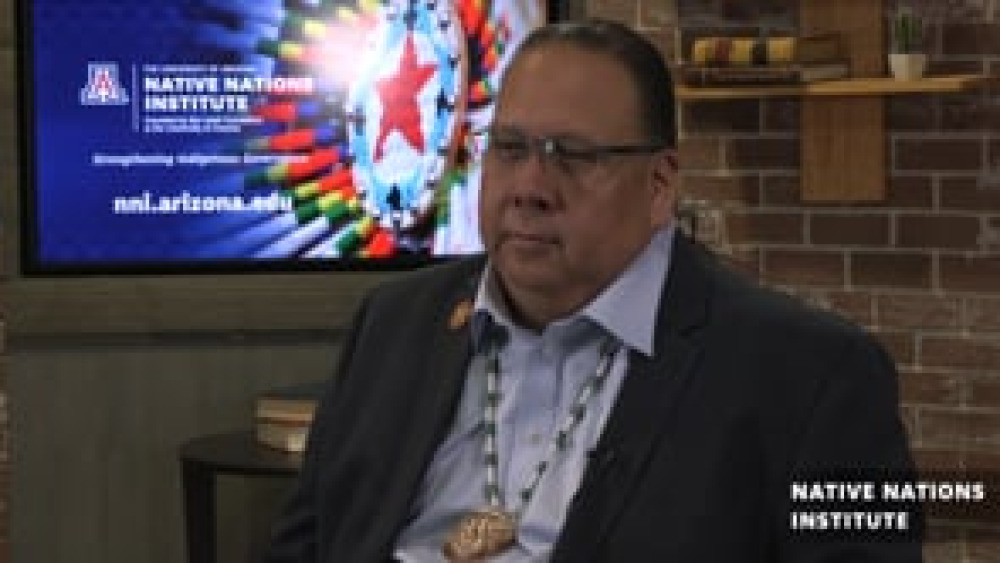
Stephen Roe Lewis: Effective Tribal Leadership for Change
Stephen Roe Lewis has been serving two terms as the Governor of the Gila River Indian Community. He follows a strong tradition and family legacy of leadership for the Akimel O’otham and Pee-Posh people in this desert riparian region of Arizona. Governor Lewis has worked on numerous political…
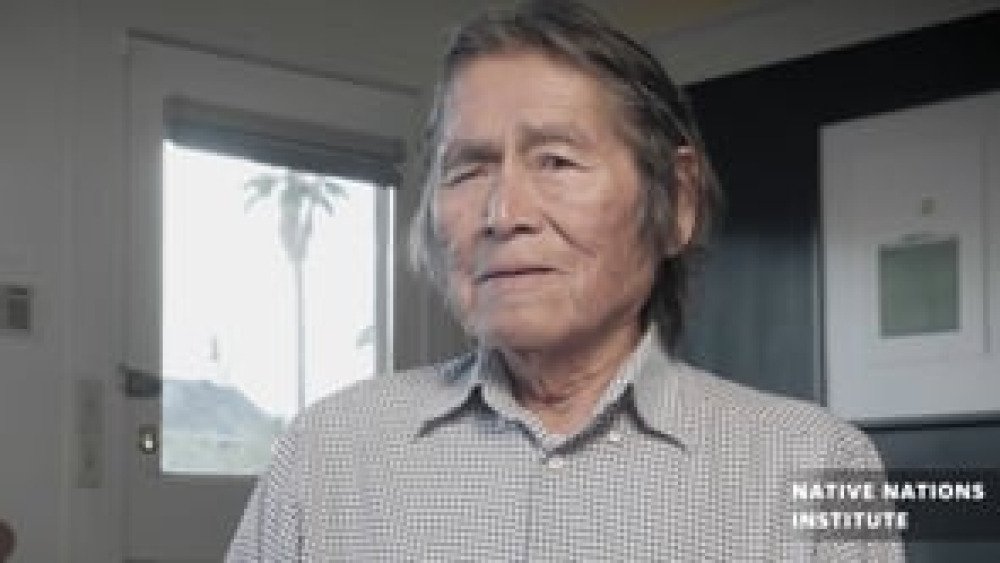
Vernon Masayesva: Self-Governance and Protecting Water
Former Tribal Chairman of the Hopi Nation and Executive Director of Black Mesa Trust, Vernon Masayesva relays his thoughts about advocating for self-governance and protection of water rights for Indigenous people. His pursuits in holding accountability of mining in Hopi territory has made Vernon…
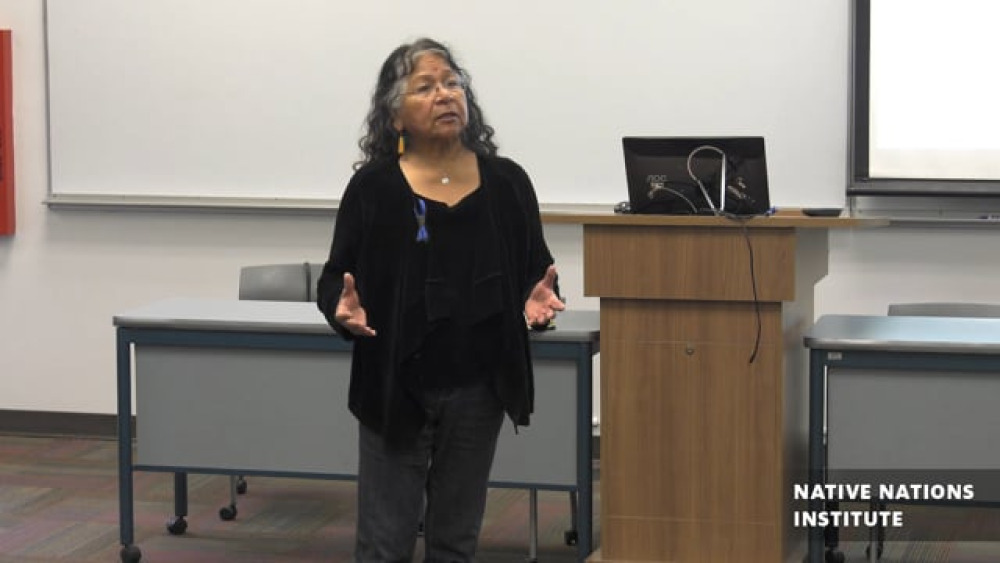
Diane Enos: Native Women in Governance
Diane Enos, Attorney, Councilwoman & Former President of Salt River Pima-Maricopa Indian Community. In addition to her tenure with the Salt River Pima – Maricopa Indian Community, Diane has served as Vice President of the Inter-Tribal Council of Arizona, as Chairwoman of the Arizona Indian…
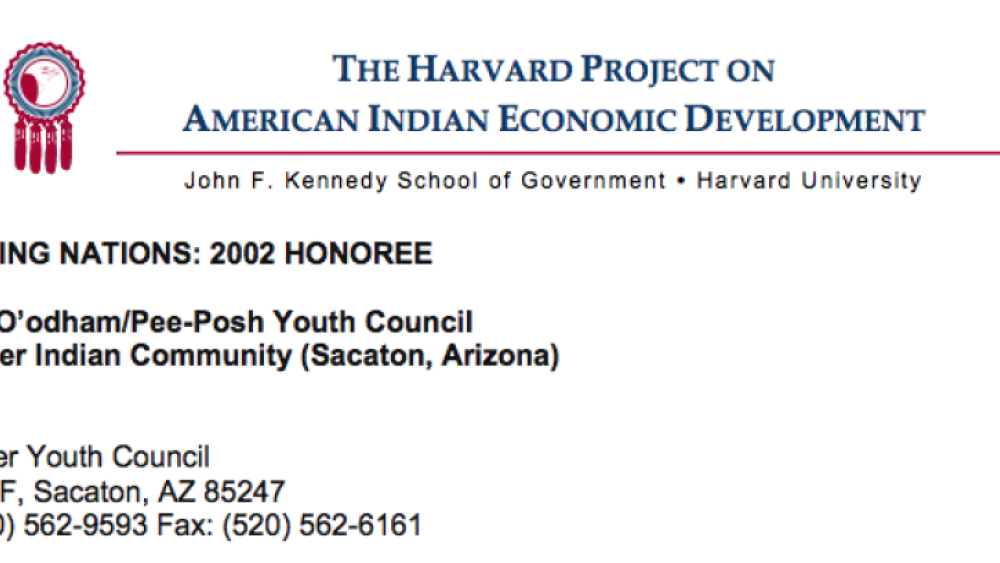
Akimel O'odham/Pee-Posh Youth Council
Recognizing that their youth possess critical insight on a full range of governing issues, tribal leaders chartered the Akimel O’odham/Pee-Posh Youth Council in 1988 to give youth a formal voice within the tribal government. The Council is comprised of 20 youth between the ages of 14-21, who are…
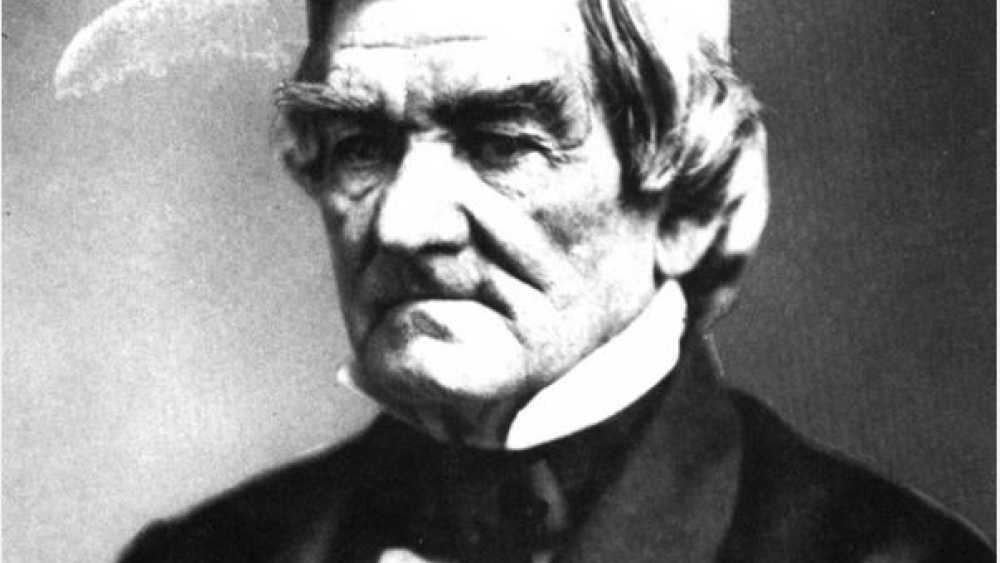
How Does Tribal Leadership Compare to Parliamentary Leadership?
Many traditional American Indian governments have significant organizational similarities with contemporary parliamentary governments around the world. A key similarity is that leadership serves only as long as there is supporting political consensus or confidence that the leader or leadership…

Youth Council Addresses Serious Problems in Michigan
Sarah Schilling, of the Little Traverse Bay Bands of Odawa Indians, is one of five 2013 Champions for Change chosen by the Center for Native American Youth. The 18-year-old is a recent high school graduate from Charlevoix, Michigan who was inspired by her participation and the youth-based efforts…
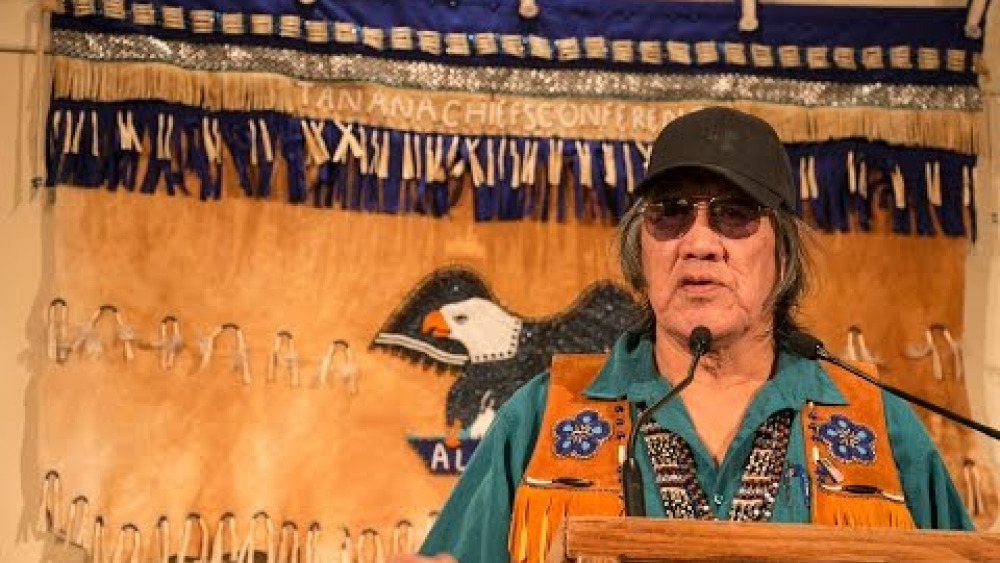
Trimble Gilbert - Tanana Chiefs Conference's 2015 Keynote Speaker
On March 17th, 2015, Second Traditional Chief Trimble Gilbert of Arctic Village spoke as the keynote at Tanana Chiefs Conference's Annual Convention. The theme for this convention was 'Stronger Together for the Next 100 Years'. Trimble Gilbert is a Gwich’in Athabascan Elder and speaker of Dinjii…
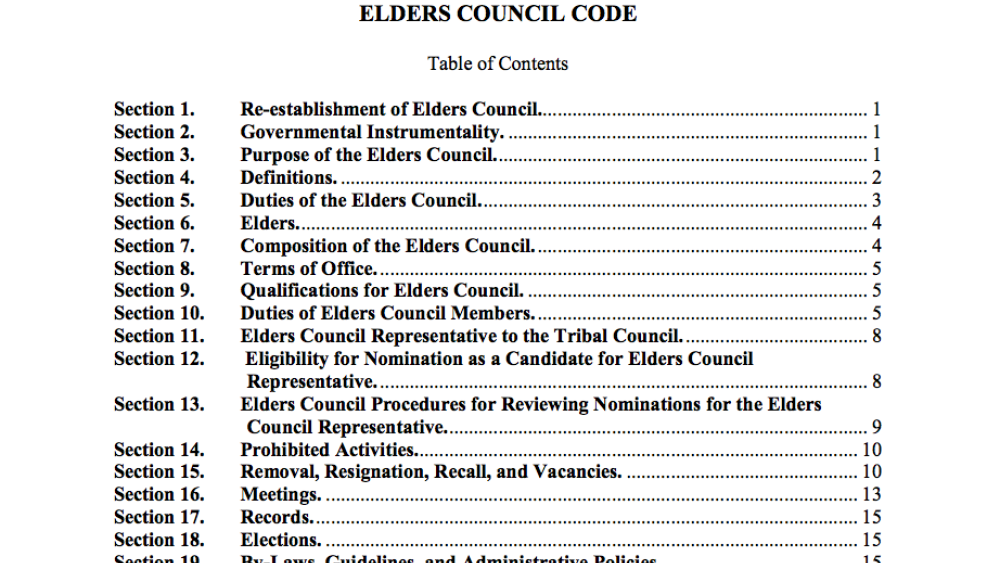
Pokagon Band of Potawatomi Indians: Elders Council Code
The Elders Council shall be organized for the purpose of: A. Providing guidance for the membership, Tribal Council, Judiciary, Executive, and Legislative branches of the Pokagon Band government on matters relative to history, traditions, and culture. B. Recommending to the Tribal Council goals and…
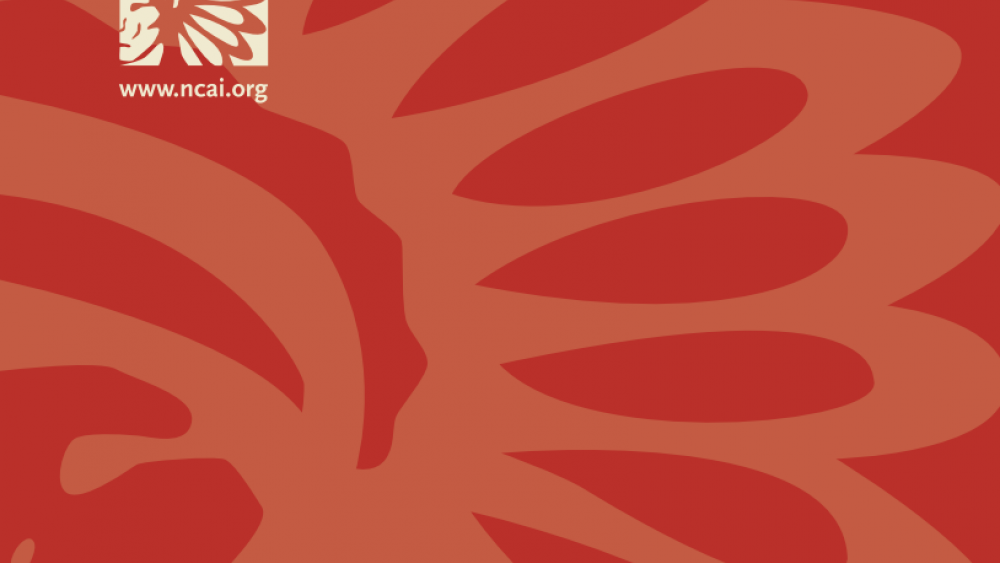
Leadership and Communications in Indian Country
This four-page report outlines the key findings from interviews with five tribal leaders and tribal communications officers across the country. The conversations focused on exploring how communications helps in their daily work, how the communications playing field has changed over the years and…
